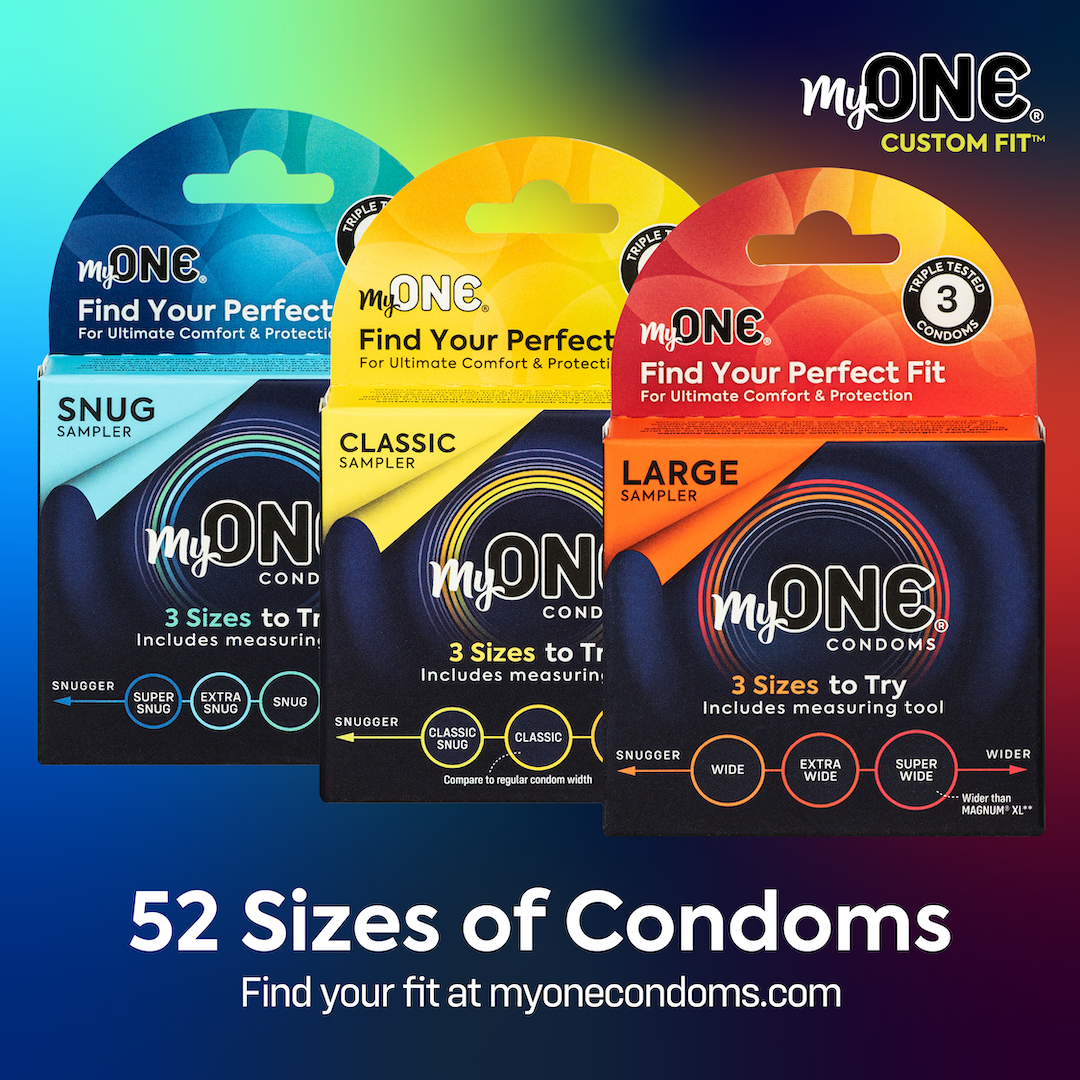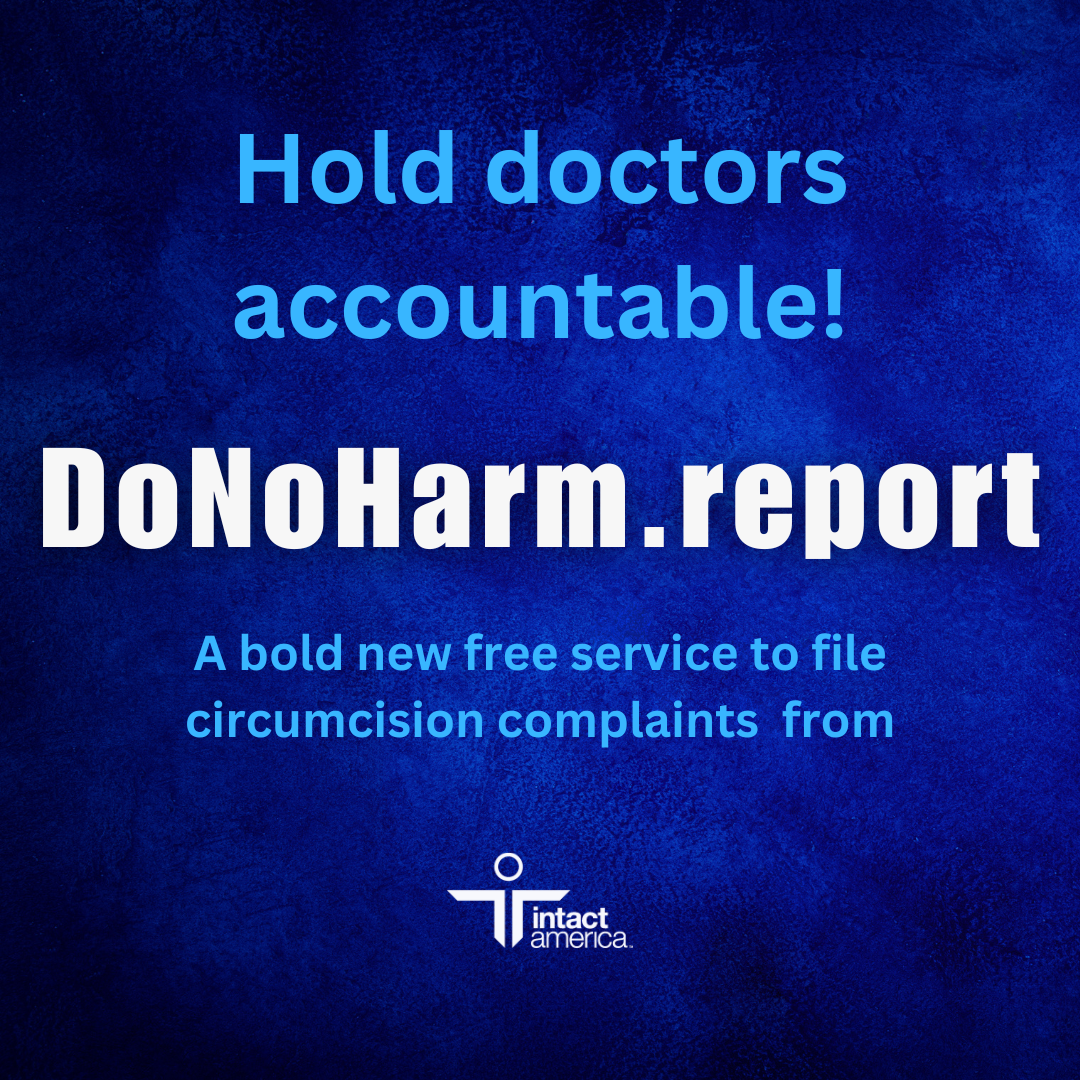I am a circumcised gay male, and one of my earliest sexual relationships was with someone who was intact. That was when I found out what a foreskin was and first heard of circumcision.
This was all new to me. Growing up in the U.S., we never learned about the foreskin in school. I just thought a circumcised penis was what a natural penis looked like. I became really curious: Why was the foreskin cut off when I was a baby?
In my initial research about 15 years ago, everything about circumcision online was misinformation about how it’s good for you: It prevents STDs, it’s cleaner, and all the different reasons that Americans have to justify it. So in the beginning, the research made me feel better about it.
But as I got older, I encountered more men who were intact. They were clearly enjoying sex more; it was a more pleasurable sensation for them. So I did more research and came across Intact America and other organizations that try to educate the public on the harms of circumcision. I quickly realized all the things I had read to justify circumcision weren’t valid reasons to do that to someone at such a young age without his consent.
That’s when I started to feel really bad about it. I felt disabled in a way. By now I knew the foreskin has a valuable function; without it, I felt like I was missing a limb. So a little over six years ago, I decided to try foreskin restoration. It was a big decision, and it’s a lot of work. I have gained back some of the mobility a foreskin provides during sex, so the skin will glide up and down the shaft. I’m glad to say it’s increased sensation a lot. And having the skin over the head of the penis has made the glans more sensitive and moist.
Restoration is not easy though. It’s an emotional, never-ending process. So much skin is cut off during circumcision that it can take nearly a decade of consistent foreskin restoration to gain back the amount of skin amputated. It takes a lot of patience, time and perseverance, and at times I want to give up. But it makes me feel empowered in a way to get some of the function that was taken from me. I’m hoping one day in the future I’ll be happier with my body.
A couple of years ago, I talked to my mom about it. I just wanted to share my feelings with her and hear the reasons she gave for agreeing to it. Her reasons were common: It’s just what everyone did. My dad was circumcised. They didn’t think twice about it.
Nothing she said was surprising to me, but I felt like it was good for me to express how I felt about it.
Intact America has provided a supportive community as I continue to heal. I get the newsletters and donate on a monthly basis. Reading about the experiences of others in the Voices column has helped me a lot; it’s given me a sense that I’m not alone. Friends who share the same pain are also a source of comfort. I’ve tried to talk to colleagues and family members when they were pregnant, hoping they would avoid it if I present the facts and how it’s affected me. But people are set in their ways, and they continue to perpetuate it with the next generation.
I’ve been seeing a therapist for years, since I started restoration. One thing I’ve learned is I can’t save the world. But I can do my part, and that’s why I’m sharing my story here.
— Tom Kallas
Interested in lending your voice? Send us an email, giving us a brief summary of what you would like to write about, and we will get back to you.





No Comments